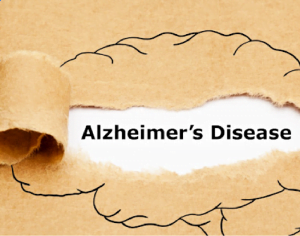 If you’re unsure about how to talk to someone with Alzheimer, this article provides helpful insights and strategies and empathic support.
If you’re unsure about how to talk to someone with Alzheimer, this article provides helpful insights and strategies and empathic support.
Communicating with a person who’s gradually losing or has lost their memory due to Alzheimer’s disease can be challenging. Their ability to say what they want or decode what you’re trying to say to them becomes increasingly difficult as time passes. They may repeat themselves continually or insist on things you know are incorrect.
It can be easy to become frustrated with them or get tempted to keep correcting them, hoping that they’ll get it right. But, communication with a person who has Alzheimer’s requires understanding and patience—a whole lot of those.
As you might know I’m a bestselling wellness author who loves to share insights and strategies for how to live longer and healthier.
In this article I will sharing some helpful information on how to talk to someone with Alzheimer’s.
Communication Changes In Persons With Alzheimer
Although there’s no known cause of this disease, age is a huge risk factor as it mostly appears later in life to persons who are 65 years and above. Fortunately, there are resources and sites with useful tips for seniors to help them navigate their health concerns better.
Either way, with Alzheimer’s, communication changes vary based on the level of the disease’s progress. These are some of the common problems you may see as the disease progresses:
- Challenges in finding the right words to say
- Repeating familiar words constantly
- Describing objects they know instead of referring them by name
- Difficulty in the ability to organize words logically
- Going back to speaking in their native language
- Easy loss of train of thoughts
- Using gestures more frequently instead of using words
- Speaking less often
How To Communicate With Someone In The Early Stages Of Alzheimer’s Disease
 In the initial stages of Alzheimer’s disease, a person may still have meaningful conversations and engage in social settings. But, they may constantly repeat themselves or get overwhelmed when they can’t find the right words to say. Here’s how to communicate effectively with them at this stage:
In the initial stages of Alzheimer’s disease, a person may still have meaningful conversations and engage in social settings. But, they may constantly repeat themselves or get overwhelmed when they can’t find the right words to say. Here’s how to communicate effectively with them at this stage:
- Avoid making assumptions about their ability to communicate because they’ve been diagnosed with Alzheimer’s. The progression of the disease is different for every person.
- Involve them in conversations and avoid interrupting them when they speak, unless they request for your help.
- Speak to them directly rather than to their companions or caregivers.
- Don’t rush the patient. Give them enough time to express their thoughts, needs, or feelings.
- Ask the patient what they’re comfortable doing and what they may need help with.
- Don’t be afraid to laugh with them. Humor can lighten the air and make communication easier.
- Allow them to tell you how they prefer communicating, either one-on-one, or through phone calls or emails.
- Be present and alert during conversations. They need your support and companionship.
How To Communicate With Someone In The Moderate Stages Of Alzheimer’s Disease
This stage of Alzheimer’s disease takes the longest time, lasting for many years. As they get to this stage, communicating becomes more challenging as brain function continues to deteriorate. They’ll also need more direct care. Here’s how to successfully communicate with the patient at this stage:
- Always be courteous and call them by their name.
- Try talking to them in person and in quieter spaces with minimal distractions.
- Talk to them slowly and clearly while responding appropriately and maintaining eye contact. This shows them that you care about them and what they’re saying.
- Allow them enough time to respond as they need to think about what to say.
- Ask or say one thing at a time.
- Use more yes or no questions, such as, “Can I take you to the mall?” instead of, “Where would you like to go?”
- Be specific when referring to or showing them where something is by identifying it by its name.
- Avoid using phrases like, “Have you forgotten?” or, “You know you shouldn’t do that.” Otherwise, it’d make them feel worse about themselves.
- Don’t argue, criticize, or correct them. If the patient says the wrong things, try and find out what they mean by repeating what they said to clarify. If you disagree with what they say, just let it be. Arguing with them will just frustrate both of you.
- Avoid giving lengthy requests as they may be overwhelming. Instead, offer clear and simple step-by-step instructions for tasks.
- Demonstrate the tasks to encourage them to participate.
- If spoken words seem confusing, use written notes instead.
How To Communicate With Someone In The Late Stages Of Alzheimer’s Disease
In the late or severe stages of Alzheimer’s disease, the patient’s ability to communicate verbally falls dramatically. They depend on nonverbal communication, such as facial expressions and gestures. They also need to have round-the-clock care. Here are tips for effective communication at this point:
- Approach the patient from the front and ensure to identify yourself.
- Please encourage the patient to communicate whichever they can. If you can’t express what they need, ask them to gesture or point.
- Consider how you communicate and the feelings behind what you say. Emotional expressions can, sometimes, be more meaningful than spoken words.
- Avoid ignoring them. Acknowledge their presence at all times to let them know you’re aware they’re with you and you care.
- Sometimes, you don’t need to say anything to them. Your presence is more than enough.
Takeaway
Communicating with a person who has Alzheimer’s isn’t easy, but they appreciate it when people around them are supportive. Be calm as they can still recognize your tone of voice. The ways discussed above should be effective when looking for ways to talk to someone with Alzheimer’s at any stage.
Live your healthiest, best life
Learn the many health-boosting insights inside my bestseller “Life is Long“
Think happier. Think calmer.
Think about subscribing for free weekly tools here.
No SPAM, ever! Read the Privacy Policy for more information.
One last step!
Please go to your inbox and click the confirmation link we just emailed you so you can start to get your free weekly NotSalmon Happiness Tools! Plus, you’ll immediately receive a chunklette of Karen’s bestselling Bounce Back Book!


 If you’re unsure about how to talk to someone with Alzheimer, this article provides helpful insights and strategies and empathic support.
If you’re unsure about how to talk to someone with Alzheimer, this article provides helpful insights and strategies and empathic support. In the initial stages of Alzheimer’s disease, a person may still have meaningful conversations and engage in social settings. But, they may constantly repeat themselves or
In the initial stages of Alzheimer’s disease, a person may still have meaningful conversations and engage in social settings. But, they may constantly repeat themselves or 